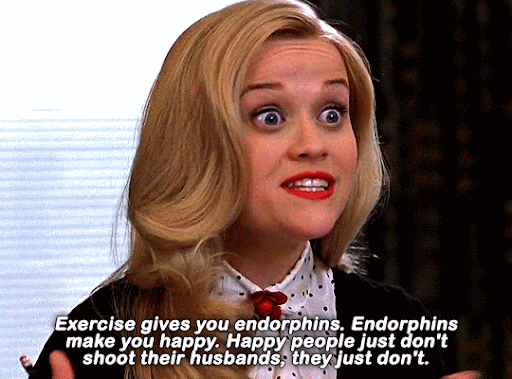
Combating Seasonal Depression
It’s real, and it’s crappy to experience. Winter seasonal depression can take even the most happy-go-lucky of us out at the knees, making us desperate for spring to finally douse us with sunshine, blue skies, the buzz of bees, and fresh scents of flowers and cut grass tickling our noses.
Being stuck inside is a literal hell for many of us (even the couch potatoes when the option of leaving the same four walls deserts us like so many hours of sunlight).
So how do we battle it? Well, we’ve got a few tips – not gonna say they’re a cure all but they can definitely be tools to get us through the last of the winter months.
What is Seasonal Depression?
For a brief overview of SAD (yes, it has an actual diagnosis and acronym, that’s how you know it’s real) we look to the John Hopkins Medicine definition:
Seasonal affective disorder, or SAD, is a type of depression. It happens during certain seasons of the year—most often fall or winter. It is thought that shorter days and less daylight may trigger a chemical change in the brain leading to symptoms of depression.
Symptoms include:
- Increased sleep and daytime drowsiness
- Irritability and anxiety
- Social withdrawal and sensitivity to rejection
- Loss of interest in formerly enjoyed activities
- Decreased ability to focus or concentrate
- Weight gain/increased appetite for sweets and carbs
- Fatigue or low energy levels
So how can you help yourself get out of the seasonal slump? First: accept that it’s a real thing, that you are not broken or weak because of it.
If your experience is beyond the pale, beyond some “home remedies” as we’ll go through below, please speak to your doctor about psychotherapy or antidepressants to get you through it. There is nothing wrong with seeking help, and as cheesy as it sounds, you are stronger for asking for it.
SAD and other depression disorders can make everything feel overwhelming, from going to work to just getting out of bed in the morning. Set realistic goals for yourself, prioritize, and break large tasks into smaller ones.
Don’t think: I have to get up, make the kids lunches, take them to school, clean the house, start the laundry, go to work, blah blah blah. Break it down: 1) I have to turn off my alarm and get out of bed, but I have a soft robe to put on. 2) I have to wash my face or have a shower, well you can take your laundry to the washer after that. 3) I’m going to make breakfast, the kids can help me make sandwiches for their lunches. And so on.
Small steps at a time will get you to the top of the mountain.
Home Remedies
- Open the blinds. Getting natural sunlight can help a lot! (Taking some extra vitamin D and C supplements can also help) Making your home and work environments as bright as possible can be a huge boon. So try and stay out of the basement.
- Talk to friends and family about how you’re feeling, share the load, ask for help, spend time with them
- Get regular exercise; in the immortal words of Elle Woods:

- Do something that gives you joy: seeing a movie, spending time with friends, taking part in some social activity. Doing something nice for others can also give you a good endorphin boost (I personally enjoy baking and sharing it with others)
- Eat healthily (junk food can sometimes soothe the soul -hello chocolate- but the extra sugars, salts and carbs can also stress out your system long term)
- Stay away from drugs and alcohol as much as you can (yes, even the devil’s lettuce). These are depressants or can make it difficult for your body to produce ‘positive chemicals’ on its own, because it’s expecting that external input.
- Try and focus on the positives. Sorry for sounding like an after-school kids’ special, but it’s true. Your brain develops pathways when we continually tell ourselves something. It’s called neural plasticity, a term referring to the neural system’s ability to modify itself (both in function and structure), responding to experiences or injury.
Don’t expect a single “magic” overnight cure. Expect your mood to get better overtime. This can also go for the other side of the spectrum if someone you care about is going through SAD: people don’t just snap out of it, as much as we wish they (or we) could.
Be kind to yourself and your mental health friends.

(Information from: John Hopkins Medicine, Mayo Clinic, Columbia University Medical)